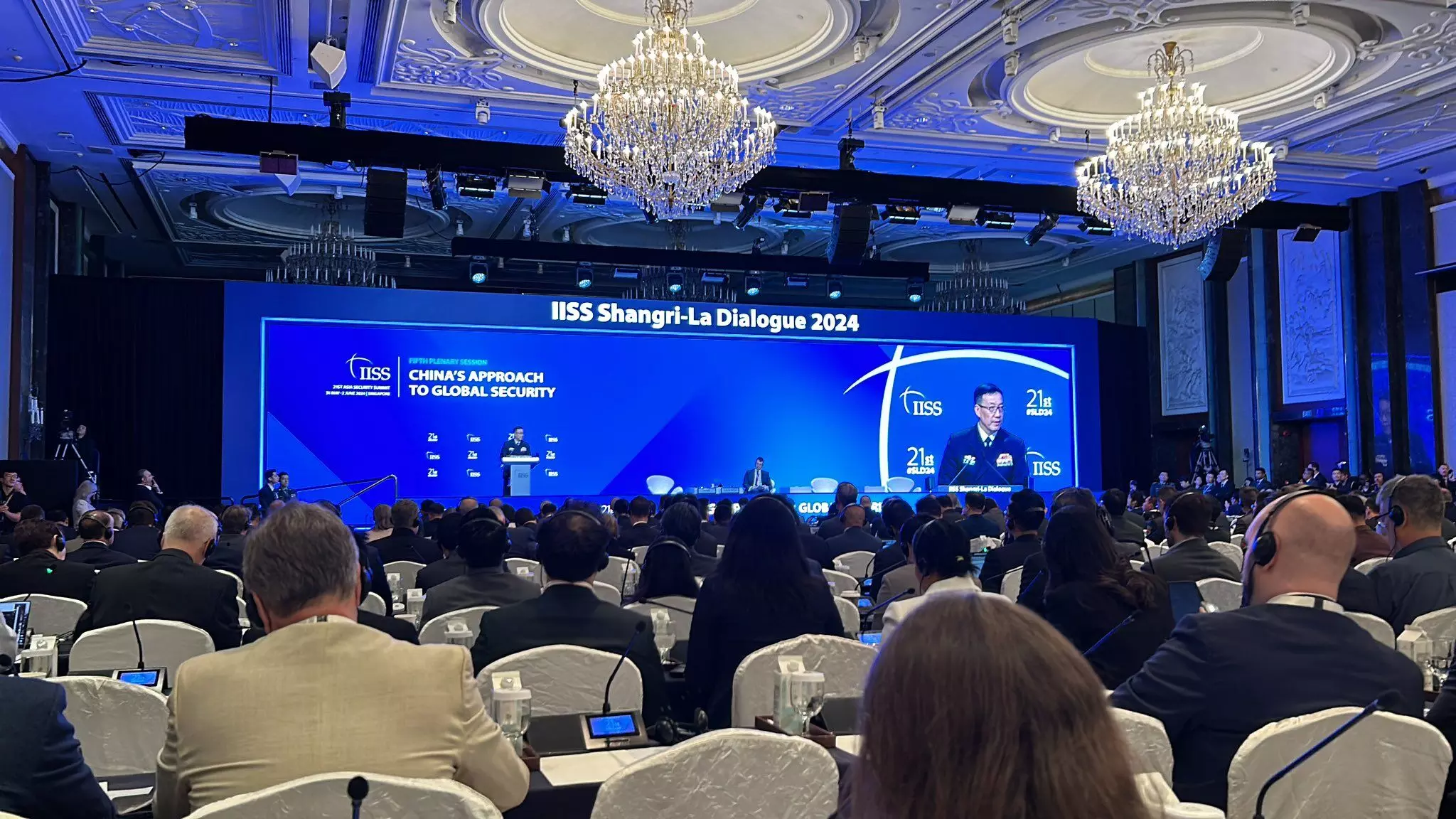Unseized opportunity
Thanks to electoral concerns, India skipped representation at this year’s Shangri-La Dialogue — missing out an important opportunity to assert its position on crucial geopolitical issues and counter China

The Shangri-La Dialogue (SLD) 2024, purported to be Asia’s premier defence summit, was held in Singapore from 31 May to 02 June. Organised by the London-based think tank International Institute for Strategic Studies (IISS), it is an annual event that seeks to bring together defence experts, ministers and the strategic community on a common platform to discuss, debate and deliberate upon global security issues. It also seeks to provide a more informal environment for ‘on-the-sidelines’ diplomacy and strategic communications.
The keynote address in this year's edition was delivered by President Marcos of the Philippines. The event witnessed President Zelenskyy of Ukraine speak ‘in person’ at the plenary on ‘Reimagining Solutions for Global Peace and Regional Security’. Other heads of government/state who attended included the Prime Ministers of Timor-Leste and Lithuania. Defence ministers of Singapore, Malaysia, Estonia, Maldives, Finland, France, South Korea, the USA, Cambodia, Australia, Indonesia (who is also the President-elect), Qatar, Japan, Sweden, China, Thailand, and Canada attended various sessions. The UK, EU, and Fiji had ministerial representation. The Commander of the US Indo-Pacific Command, the French Vice-Chief of Defence Staff, heads of the US, Philippines and Vietnam Coast Guard, Chief of the Indonesian Maritime Security Agency, the Commander of the US Cyber Command, the Chair of the Military Committee of NATO, and the Director-General of Joint Staff Headquarters, Pakistan, were amongst the prominent military participants.
President Marcos, in his keynote address, alluded to the nuanced approach of the Philippines towards maritime issues. Without explicitly naming China, he called it out over "illegal, coercive, aggressive, and deceptive actions" in the South China Sea (SCS). He laid certain red lines for China by stating that the killing of Filipinos would be “close to an act of war.” President Zelenskyy reproached China for supplying Russia with weapons against Ukraine. This shift from its earlier stance of not criticising China to one of open criticism is a result of Chinese duplicity. Despite professing to be “neutral”, China has sided with the Russians and actively supported its war-waging potential with military and economic means. Zelenskyy sought the participation and support of Asian nations in the forthcoming ‘Summit on Peace in Ukraine.’ He accused China of attempting to stymie the summit by influencing and discouraging countries from meaningful participation in it. The US Defence Secretary, Lloyd Austin, advocated the US approach in the Indo-Pacific by emphasising a network of regional partnerships, untied to alliances, that achieved convergence in building stronger and more resilient links. His reassurance of American commitment to the Indo-Pacific was a significant statement of intent.
China’s reaction to matters in the Indo-Pacific was acerbic. Chinese Defence Minister Dong Jun threatened Taiwan with “self-destruction,” warned a “certain country” (read- Philippines) of provocative behaviour in the SCS and accused the US (without naming it) of trying to create an “Asia-Pacific NATO.” His angst at the US decoupling made him refer to it as “a dangerous nation” that was risking “chaos and conflict.” Reiterating its One China policy, Dong Jun spent half the time of the question-answer session in a monologue voicing China’s claim on Taiwan. A trilateral on the sidelines between the defence bosses of the US, Japan and South Korea further riled the Chinese. Even as China focused almost entirely on berating the US, Taiwan, and the Philippines, the grim suffering resulting from the Israel-Hamas war found a voice from Indonesia and Malaysia. Indonesia’s President-elect expressed willingness to contribute peacekeeping forces to Gaza if requested by the United Nations.
While the three days allowed participants to tackle security issues, the geopolitical rivalry between the US and China was evident in the diverging paths they envisioned in regional cooperation. However, unlike the previous edition of the Dialogue, China agreed to a meeting between Jun and Austin. This was a small but important breakthrough in restoring a semblance of military-to-military communication.
As the only Quad country to stay away, India’s absence was notable in the SLD this year. While ministerial absence could be (lamely) attributed to the elections, India could have deputed either the Chief of Defence Staff (CDS) or the Chief of the Air Staff (CAS). The SLD had a special session focusing on security in the Indian Ocean and the Pacific on June 2. This theme was of direct importance to India and for stability in the Indo-Pacific. As an important resident power in the Indian Ocean, India’s participation could have given us space in the strategic discourse and enabled the sharing of our perspective, concerns, and vision. SLD was a virtuous opportunity for India to call out China’s territorial and maritime encroachments. Doing so would have raised India’s stature and conveyed our ability to stand up and be counted as a powerful and reliable nation. Establishing a ‘personal touch’ between senior military commanders/chiefs could have boosted defence diplomacy and strategic communications. It was a missed opportunity. To get a seat at the high table in international affairs, statements of being ‘Vishwaguru’ or ‘Vishwamitra’ must be matched by vigorous action on the ground. Unfortunately, electioneering seemed to have clouded our strategic outlook. It is time to get back our eye on the ball.
“In international relations, you don't base your work on hope” - Federica Mogherini
The author is a former IAF officer who analyses defence, geopolitics and international relations. Views expressed are personal



